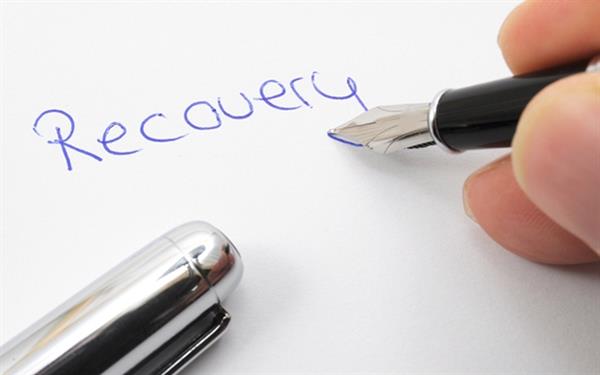Suboxone Medically Assisted Detox and Treatment
Suboxone is the brand name of a drug (controlled substance) that combines Buprenorphine and Naloxone. Buprenorphine is a narcotic Opioid and Naloxone is an Opioid antagonist added to the medication to discourage the use of the drug intravenously. Although Buprenorphine has been around since the 1970’s, Buprenorphine by itself (Subutex) and Buprenorphine and Naloxone (Suboxone) were first approved for the treatment of Opioid addiction in the US in 2002. Physicians are limited to the number of patients they are allowed treat at a time and must complete special training in order to be allowed to prescribe or treat patients with Subutex or Suboxone. This can sometimes make it difficult to find doctors who prescribe these medications or have openings for new patients.
Suboxone comes in different strengths or doses. The most common seen is 8mg/2mg, meaning 8 milligrams of Buprenorphine and 2 milligrams of Naloxone. It also comes in 2mg/0.5mg and 12mg/3mg. Suboxone can come in pill form but most commonly comes in the form of a dissolvable film. Both are typically orange and have a type of tang smell and flavor. Suboxone can be taken sublingually, meaning dissolved under the tongue, or through buccal administration, meaning dissolved in the cheek. Suboxone is a powerful narcotic and can cause serious and even life threatening side effects. These side effects can be intensified by using sedatives or other drugs or alcohol while taking Suboxone.
Can Suboxone Cure Opiate Addiction?
Suboxone is not a miracle drug that magically cures opioid addiction. Research has shown addiction is a chronic disease effecting the mental, physical and spiritual aspects of the person. Suboxone only treats the physical aspect of this addiction. Furthermore, Suboxone use can lead to further opioid dependence and addiction. This powerful medication should only be used to taper off opiates, such as prescription pills or heroin.
Is Suboxone Addictive?
Yes Suboxone is just as addictive as Heroin, but not as desirable. Suboxone is a legal substitute allowing the opiate addicted man or woman to legally feed their cravings and suppress their physical addiction. The effects are mild, the onset of the medications effects are slow, but the drug has a very long duration or half life in the body.
How Does Suboxone Work?
Buprenorphine produces a similar, yet weaker effect than heroin or similar opiates like fentanyl. Specifically called an opioid partial agonist. Unlike heroin or similar opioids it has a ceiling effect, meaning the effects increase until the person takes a certain amount and then the effects level off and nothing more can be felt by the user. This lowers the abuse potential of Suboxone, but most Suboxone users have found that using less causes a minor euphoric high and that is enough for an opiate addict to continue using Suboxone. This ceiling effect is due to the naloxone in the medication and chemically binds to the receptor negating the effects of the partial agonist.
Can I use opiates while on Suboxone?
Yes, but the effects of the opiate are negated due to the naloxone which is bound to the same receptors. Some report getting sick using opiates while on suboxone, and others simply waste the opiate because they cannot feel anything. This is another reason why the medical establishment has started to prescribe Suboxone in both civilian life, jails, institutions and treatment centers.
Why are so many rehabs and clinics prescribing Suboxone?
Suboxone is a legal prescription like methadone. Suboxone is typically used to treat Opiate or Opioid withdrawal. It is given as a taper, meaning less and less of the drug is given to ease the patient off and into sobriety. A typical taper lasts anywhere from 7 to 14 days and typically starts with doses ranging from 4mg to 12mg with the final doses being much less. The exact length of the taper and doses are determined by a couple of factors. The first factor being withdrawal symptoms usually measured by a Clinical Opioid Withdrawal Scale or COWS. The second factor being the amount of Opiates or Opioids the patient was using as well as the length of time the patient has been using them. Some doctors have been known to prescribe Suboxone as a maintenance drug, meaning they continue to give the patient Suboxone indefinitely. This is typically done in the name of harm reduction. The idea is that a supervised program is less harmful than IV Heroin use or unsupervised street drugs.
The reality of a maintenance program is that many Suboxone users become addicted and have found that Suboxone is having worse withdrawals than heroin or . They essentially end up in a worse situation than their previous addiction. We regularly see patients with a minor pill addiction on large amounts of Suboxone with zero treatment. Doctors are prescribing Suboxone and the patient is not given a plan to eventually stop the medication.
Suboxone is used quite often by detox facilities with heroin addiction. Its a great tool if used properly and under the case of an addiction specialist. For example we can use Suboxone to help a patient detox from heroin or prescription pills. With a goal of totally removing the medication from the system before treatment begins.
You will find that there are many philosophies on addiction and majority of Suboxone prescribers believe it is only a physical ailment and not one that effects the persons physical, mental and spiritual being. This allows rehab professionals to confidently prescribe Suboxone and expect the opiate user to get back to life and find some normalcy. The fault with this philosophy is that the patient trades one substance for another, and their underlying aches and pains are never resolved. The reason why they numbed themselves with opiates, alcohol, and other substances are still causing mental and spiritual pain. This is why many stop Suboxone and end up back on Heroin so that they can feel that high again and get their release. Otherwise Suboxone doesn’t do much for the addict, except suppress cravings.
What are Symptoms and Side Effects of Suboxone?
- Muscle Aches & Pains
- Sleeplessness
- Nausea
- Vomiting
- Constipation
- Irritability
- Nervousness
- Restlessness
- Stomach Pains
- Dizziness
- Weakness
- Fever and Chills
- Diarrhea
- Overall decline of physical health (Mental as well).
How Do I Stop Using Suboxone?
If you or a loved one are on Suboxone and want to get off, our team has helped many men and woman taper off this medicine. Our medical staff understands the half life and how the body metabolizes the medication and the lingering effects post Withdrawl. They also understand why the abuse started in the first place. Our team will help you create a plan to help with withdrawal symptoms once the medication is stopped. This detox phase varies and depends on the patients history, how much and how long they have been on Suboxone, and how often they take it. This can last anywhere between 7 to 14 days. You do not leave our detox with more medication and we do not offer a Suboxone treatment plan post rehab. We believe sobriety happens when all chemicals have left the system and the crux of their Addiciton is dealt with head on. Otherwise the patient has no reason to get clean because they are constantly feeding their cravings with Suboxone and other opiate alternatives like Zubsolv, subutex, methadone and so forth.
What is precipitated Suboxone Withdrawl?
When starting a Suboxone taper it is important that the patient is experiecning active withdrawal. If Suboxone is administered too soon it can cause precipitated withdrawal. Precipitated withdrawal is like opioid withdrawal except it is more intense and comes on suddenly. This happens because the patients receptors have an existing opiate and the Suboxone removes that opiate from the receptor. This process causes a serious reaction and can be very painful and scary. Depending on which opiate you are taking, it can take 12 to 72 hours before you can take Suboxone after your last dose.
What are the symptoms of precipitated Withdrawl?
- Agitation
- Anxiety/Panic Attach
- Excessive Sweating
- Muscle and Joint Pains
- Unable to Sit Still/Fidgeting
- Insomnia
- Uncontrollable Yawning
- Runny Nose/Sniffles
- Diarrhea
- Chills
- Nausea or Vomiting
- Dilated Pupils
- Elevated Vital Signs/Increases Blood Pressure/Increased Heart Rate/Heavy or Labored Breathing
What if I am Taking Benzodiazepines with Suboxone?
We regularly see and Suboxone being prescribed together. Benzodiazepines is another class of drug and used for anxiety, panic attacks and other similar ailments. The most popular is Xanax (bars). This can be a very dangerous combination due to the combined cardiovascular effects on the body. Detoxing from both medications at the same time can cause quite a bit of pain and we follow a similar plan to Suboxone only detox. We slowly taper our clients off the medication and estimate the half life and timeline of detox. Its best to speak to your detox facility, and before committing to detox the patient should try to lower their doses as much as possible. Allowing a faster and easier detox on the body.
Suboxone Should Only Be Used for Medically assisted Detox.
It is important to remember that Suboxone is a serious and dangerous drug. It is a narcotic and when used improperly can lead to serious consequences and even death. Using Suboxone as a detox medication can be a very effective way to combat the symptoms of opiate and opioid withdrawal although it is imperative that person seek help from a certified professional or facility like Bay Area Recovery Center. Under no circumstances should someone try to detox themselves. It is very important to only take Suboxone under the supervision of a physician. We have successfully treated the chemical dependent for over 20 years. Let us provide you with help you need, call us now (713) 999-0116 or (281) 853-8715

Get Off Suboxone and Become Productive Again.
We have found that most Suboxone users have the same mental and spiritual ailments they had while using heroin. Although they are no longer at risk of committing felonies or getting possession charges, they still have depression, lack of motivation, focus and happiness.
We know what it feels like to be numb and not have the desire we once had when we were sober and ready to tackle life. Its a bad situation for everyone involved, but we also know what it takes to get off all substances and learn how to get back to life and deal with reality. We’ve been doing this for decades now and many on our staff have been in your shoes. They have dedicated their lives to helping men and woman just like you or your loved one.
Give us a call and start the conversation. Its totally free and we promise we are unlike most corporate rehabs out there in the country. Our team will actually be there to listen and help you realize what it takes to get your life back in order. When you are ready we can help you get into rehab and on track for sobriety.





